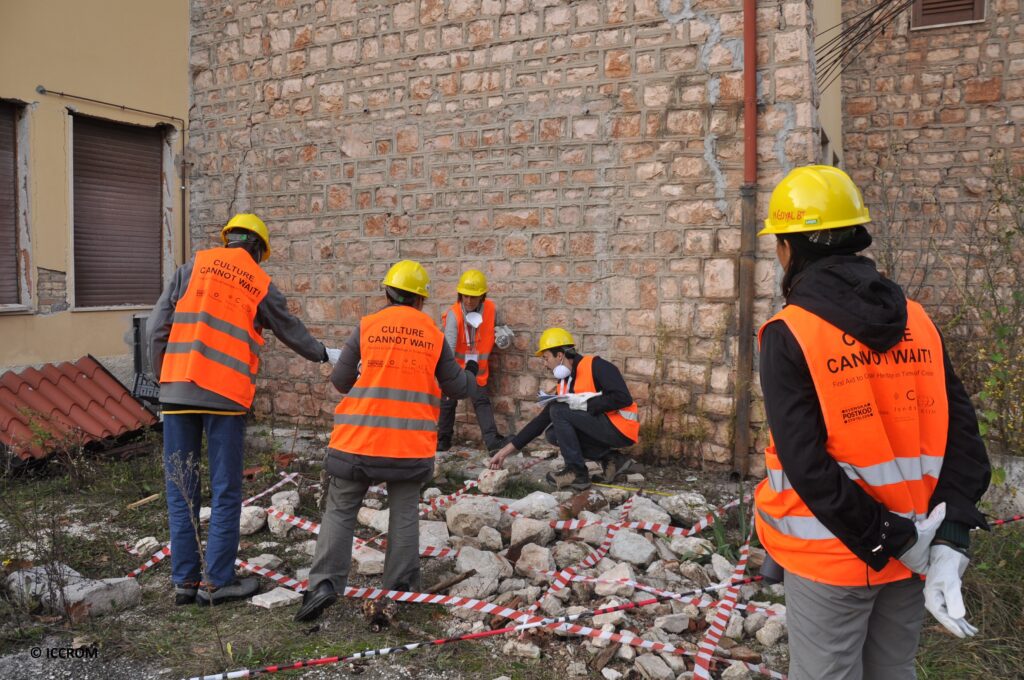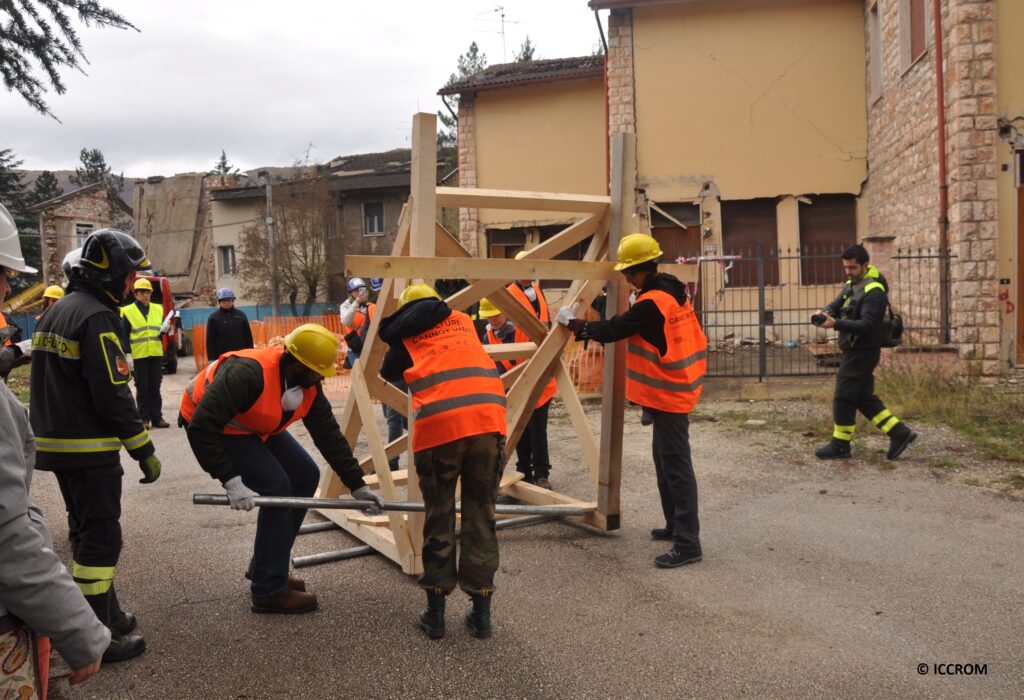By Aparna Tandon, Senior Programme Leader, First Aid and Resilience for Cultural Heritage in Times of Crisis │ Digital Heritage
The 27th of November 2020 marked the 60th anniversary of Italy’s accession to ICCROM, formally established through the ratification of the Headquarters Agreement by Law 11 June 1960 No. 723.
The creation of an international centre like ICCROM, designated to promote the preservation and restoration of cultural property, was done in response to the urgent need expressed by UNESCO and the international community, to have a central body that could provide countries with the guidance, expertise and support they needed to recover from the destruction of World War II. The choice of Rome as the location for ICCROM, was the result of the Italian Government’s successful commitment to enhance its leading institutions in the sector of cultural heritage conservation (such as the Istituto Centrale del Restauro), and to present them as ideal and qualified interlocutors. After UNESCO appointed Italy as the host country and the Headquarters Agreement was signed in 1957 in Paris, its ratification by the Italian Parliament was the last missing piece. It was not until November 1958 that the debate resumed. At that time, the Minister of Foreign Affairs Amintore Fanfani delivered a crucial speech to the Lower Chamber of the Parliament, strongly encouraging the ratification of the Headquarters Agreement to fully adhere to ICCROM and recognize its legal status. A year and a half later, his recommendation was fulfilled.
Sixty years have now passed since the Official Gazette announced Italy’s accession to ICCROM, and a multitude of initiatives have benefited from the close collaboration between Italian institutions and the international Centre: from the earliest Architectural and Mural Painting Conservation courses (ARC and MPC) to the more recent partnership within the ambit of ICCROM’s flagship capacity development programme on First Aid and Resilience for Cultural Heritage in Times of Crisis (FAR).

The FAR Programme emphasises an integrated and multi-hazard risk management for heritage (moveable, immoveable and intangible), which is systematic and coordinated with a wider disaster risk management at local, national and international levels. It promotes a systems approach for heritage and underscores its links to social, economic, as well as environmental dimensions of sustainable development. The Programme’s strategy takes into account risk drivers such as: climate change and variability, armed conflicts, as well as socio-economic instabilities. FAR activities include training for professionals drawn from the fields of cultural heritage, disaster risk reduction, humanitarian and civil defence sectors. Training is offered at international, regional and national levels. Besides training, the Programme has invested in developing a vibrant network of cultural first aiders which spans 83 countries. The network is engaged in conducting ‘training of trainer’ workshops, field projects to address gaps between policy and practice, as well as co-create self-help learning tools to encourage community-based disaster risk management of cultural heritage. Upon the request of ICCROM’s Member states, the FAR Programme provides technical assistance for providing first aid to cultural heritage for major or complex emergencies. The most recent examples include providing advice for the rapid needs assessment for affected heritage after Cyclone Amphan in India, training of Croatian museum directors for planning the response and recovery of the museum collections damaged by this year’s earthquake, as well as the training of volunteers for the emergency stabilisation of collections and buildings following the Beirut explosion.

In 2019, the FAR Programme partnered with the Italian Ministry of Culture, Italian Civil Protection Department and the National Fire Brigade Corps to organise the international training on First Aid to Cultural Heritage in Times of Crisis in Rome and Norcia, Italy. The partnership was further strengthened through PROCULTHER, a unique initiative supported by the European Commission Directorate-General for European Civil Protection and Humanitarian Aid Operations (DG-ECHO) to develop a common methodology for providing emergency response and first aid to cultural heritage in the event of disasters.
At present, the FAR Programme is working with International Search and Rescue Advisory Group (INSARAG), UNESCO and International Council on Monuments and Sites and its International Risk Preparedness Committee in Turkey (ICOMOS-ICORP Turkey), to produce technical guidelines for carrying out search and rescue operations at cultural heritage sites.
The self-help videos and tools that ICCROM’s FAR Programme has introduced in 2020 include:
inSIGHT, a participatory game offers its users the opportunity to build a common understanding of how the cultural and natural heritage of a place contributes to capacities for disaster risk reduction and sustainable development. Playing inSIGHT will enable local governments, organizations and individuals, to promote the Sustainable Development Goal 13 on Climate Action, by recognizing the traditional knowledge and practices of a community that contribute to the sustainable management of natural resources in a given context. Such practices and knowledge could help mitigate and adapt to the risks induced by global climate change. Additionally, this game promotes a better understanding of disaster risk, which in turn, helps to implement the Sendai Framework for Disaster Risk Reduction.
In order to understand the direct and indirect impacts of the COVID-19 pandemic on cultural heritage, the FAR Programme has devised and distributed forms for identifying risks, monitoring impacts and assessing needs. These forms have been translated into six languages including Arabic, Chinese, French, Persian Portuguese and Spanish.
Additionally, the FAR Programme has released 3 self-help videos on protecting heritage from COVID-19 outbreaks and secondary hazards as well as on how to support heritage-based livelihoods during the pandemic. Produced in collaboration with the ALIPH Foundation and Egyptian Heritage Rescue Foundation, these videos are targeted at the Middle East, North Africa, Afghanistan and Pakistan (MENAP) region, which is suffering from intersecting conflicts, disasters as well as a public health crisis.
For interest and queries write to: far_programme@iccrom.org






